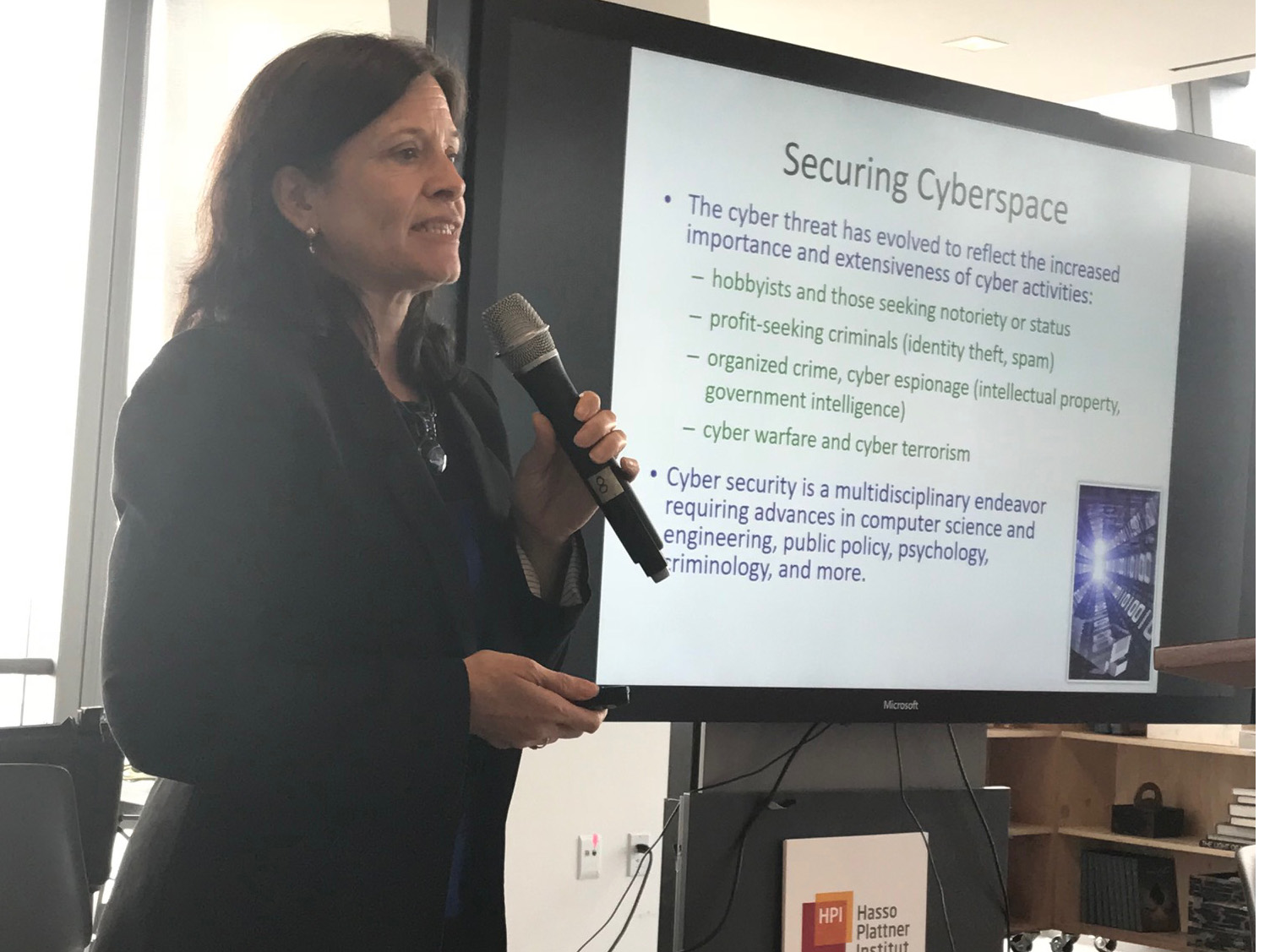October 2018
DIMACS is working with the AEGIS project in its efforts to promote interactions on privacy and  cybersecurity between stakeholders in Europe and the United States. AEGIS is a European Commission Horizon 2020 project focused on strengthening international dialogues on cybersecurity and privacy in order to facilitate the exchange of viewpoints, policies, and best practices toward the goal of accelerating EU-US cooperation in research and innovation in cybersecurity and privacy. DIMACS’s involvement in AEGIS activities is spearheaded by DIMACS Director Rebecca Wright, who leads Rutgers’ participation as a US partner in AEGIS.
cybersecurity between stakeholders in Europe and the United States. AEGIS is a European Commission Horizon 2020 project focused on strengthening international dialogues on cybersecurity and privacy in order to facilitate the exchange of viewpoints, policies, and best practices toward the goal of accelerating EU-US cooperation in research and innovation in cybersecurity and privacy. DIMACS’s involvement in AEGIS activities is spearheaded by DIMACS Director Rebecca Wright, who leads Rutgers’ participation as a US partner in AEGIS. 
Among the activities that DIMACS is engaged in is the AEGIS EU-US Roundtable on the Interplay of Technology and Policy in Data Privacy. The Roundtable will be held on December 5, 2018 at the ICT 2018 Conference in Vienna as part of DIMACS’s Big Data Initiative on Privacy and Security. The Roundtable, with participants from both research and policy from the EU and the US, will highlight progress and challenges related to enabling the use of now-ubiquitous collections of personal information while protecting the privacy of those whose data are collected. As the information that is collected about us grows in quantity, scientific and commercial value, and sensitivity, addressing challenges in privacy and data protection are crucial to advancing innovation in areas including health, energy, and smart cities. Both technology and policy have key roles in protecting information and data privacy, but it is not always clear how they can best work together. Presenters will explore the roles that technology and policy have in protecting information and data privacy. Confirmed US speakers are Aloni Cohen (MIT), Tomas Sander (Intertrust), and Alexandra Wood (Harvard).
The Roundtable will be DIMACS’s second jointly sponsored event with the AEGIS project. In conjunction with CCICADA, AEGIS co-sponsored a University/US Coast Guard Working Meeting on Maritime Cyber Security on March 7, 2018. The working group meeting addressed a number of cybersecurity concerns that arise in the maritime domain and included participants from the US Coast Guard (USCG) and various universities and national labs. Questions and issues discussed during the meeting included the existence of relevant standards, the worry that cost reductions in the USCG might increase cybersecurity risk, the role of regulation, and addressing “human-in-the-loop” questions. While this working group meeting focused largely on concerns relevant to the US Coast Guard, additional questions arise when considering the interactions between countries. The meeting also led to interest in AEGIS by several participants, and an acknowledgement of the importance of international collaboration in maritime cybersecurity.
In September, Wright was a keynote speaker at the Hasso Plattner Institute’s Cybersecurity Symposium, “Big D ata and Artificial Intelligence: Driving the Future of Cybersecurity.” The symposium brought together researchers from Germany and the US and explored areas such as protecting digital identities, the promise and challenges of blockchain technologies and the use of big data to enhance cybersecurity. In her keynote address, Wright discussed the challenges of protecting digital identities and noted connections with AEGIS project goals. In addition to asking users to protect their own data, Wright said that services and infrastructure should also provide protection to users, and she noted that it is important for the technology sector to work with policy makers to incentivize an appropriate data ecosystem that both protects individuals and enables innovation. This includes the need for international cooperation in the research and innovation communities in cybersecurity and privacy, which is directly related to AEGIS project goals.
ata and Artificial Intelligence: Driving the Future of Cybersecurity.” The symposium brought together researchers from Germany and the US and explored areas such as protecting digital identities, the promise and challenges of blockchain technologies and the use of big data to enhance cybersecurity. In her keynote address, Wright discussed the challenges of protecting digital identities and noted connections with AEGIS project goals. In addition to asking users to protect their own data, Wright said that services and infrastructure should also provide protection to users, and she noted that it is important for the technology sector to work with policy makers to incentivize an appropriate data ecosystem that both protects individuals and enables innovation. This includes the need for international cooperation in the research and innovation communities in cybersecurity and privacy, which is directly related to AEGIS project goals.
The AEGIS project has produced a number of reports, white papers, and policy briefs aimed at bridging between technology and policy and informing a broader community about the current cybersecurity landscape in the EU and US. These documents, available for download from the AEGIS website, include:
- White Paper on Research and Innovation in Cybersecurity (October 2018), which aims to inform the research community (including funding agencies), and the related Policy Brief on Research and Innovation in Cybersecurity (October 2018) that helps make the White Paper accessible to a broader audience
- Policy Brief on Cybersecurity Policy (October 2018), which examines the most current relevant legislation and public policies that can influence future research and innovation collaboration between the EU and the US in the field of cybersecurity and privacy
- Report on Cybersecurity and Privacy R&I Priorities for EU-US Cooperation (June 2018), which presents the results of a survey carried out by AEGIS to measure the interest in EU-US cybersecurity and privacy R&I projects and initiatives, determine priority areas of interest for cybersecurity and privacy R&I cooperation, and identify barriers to EU-US collaboration
- Cybersecurity and Privacy Landscape in the US (June 2018), which provides a comprehensive picture of the current state of the country´s cybersecurity using the critical areas defined by the Federal Cybersecurity Research and Development Strategic Plan
- Cybersecurity and Privacy Landscape in Europe (May 2018), which maps the current key technological, market and regulatory aspects of cybersecurity in the EU and cross analyzes them with those in the US
- White Paper on Cybersecurity Policy (May 2018), which analyzes the cybersecurity strategies adopted by the EU and the US in recent years.
Printable version of this story: [PDF]


